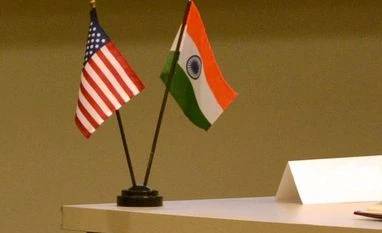By Dan Strumpf, Sudhi Ranjan Sen and Iain Marlow
Allegations that an Indian government agent ordered the killing of a US citizen in New York risk spoiling the Biden administration’s effort to deepen ties with Prime Minister Narendra Modi’s government, although both sides are playing down the significance for now.
In an indictment unsealed Wednesday, prosecutors in Manhattan federal court accused an Indian national of attempting to orchestrate the murder of a Sikh activist in June, under the direction of an unidentified Indian official who had once allegedly served in one of the country’s internal security forces.
The US sees India as key to its strategy of countering China’s growing assertiveness in Asia, one of its top global priorities. But the accusation will add to criticism over the White House’s drive to strengthen the US-India alignment despite concerns over Modi’s human rights record. It also comes about two months after Canada accused the Indian government of involvement in the murder of a Sikh separatist in British Columbia.
The US has reacted in relatively measured tones so far, after keeping the issue under wraps for the past several months even as President Joe Biden and Modi met in both Washington and New Delhi to demonstrate their partnership. It’s unclear yet how Biden will respond to Modi’s invitation to be a guest of honor at the country’s annual Republic Day celebrations next month.
“This is something we take very seriously,” Secretary of State Antony Blinken told reporters in Tel Aviv on Thursday. “A number of us have raised this directly with the Indian government in past weeks,” he said, adding Biden and his team “look forward to seeing the results” of an Indian investigation.
A senior US official, who asked not to be identified discussing the administration’s thinking, said India is an important strategic partner with which the US is pursuing an ambitious agenda to expand cooperation. It expects the Indian government to cooperate with the US investigation and to stop any such activities taking place in the US, the person said.
Also Read
“The administration will do its utmost to limit the damage — and the quiet way it has handled things thus far proves that — but the disquiet about India in various quarters will intensify,” said Ashley Tellis, a former White House and State Department adviser on South Asia who’s now at the Carnegie Endowment for International Peace.
Extradition, Investigation
The Indian national named in the indictment, Nikhil Gupta, was arrested in Czech Republic in June on allegations of conspiring to commit murder for hire, and Washington requested his extradition in August, according to the country’s Ministry of Justice. The request is being investigated by the Prague prosecutor’s office, it said.
Indian investigators are going through the evidence and may seek access to the suspects, according to people familiar with the discussions. Officials are concerned about possible demands for the extradition of the Indian government agent to face charges in the US, the people said.
The announcement of the allegations come at the tail end of a number of high-level meetings between US and Indian officials that underscore the deepening relationship. US Secretary of State Antony Blinken and Defense Secretary Lloyd Austin were in New Delhi earlier this month to meet their Indian counterparts.
The two sides have agreed to co-produce Stryker armored vehicles, the latest sign of a defense cooperation aimed at countering China’s rising military might in Asia and New Delhi’s traditional arms relationship with Russia. Indian officials said the fact the meeting took place during the Israel-Hamas war demonstrated the broader US-India relationship remains on track.
As well, Bill Nelson, the administrator of the National Aeronautics and Space Administration, arrived in India this week to deepen his organization’s ties with India’s top space research body.
Strategic Relationship
“The two governments chose to proceed with meetings, and build up new areas of strategic cooperation, with this in the backdrop,” said Richard Rossow, chair in US-India policy studies at the Center for Strategic and International Studies and a longtime consultant for businesses operating in India. “The potential ramifications to the relationship, now that this plot has come to light, depends on the level of American public interest and related pressure on the Biden administration.”
While the indictment didn’t identify the intended victim of the plot, Gurpatwant Singh Pannun, general counsel of the separatist group Sikhs for Justice, has said he was the target. New Delhi has previously labeled Pannun a terrorist.
Directing Gupta, according to the indictment, was an unnamed Indian official described as a “senior field officer” working in “security management” and “intelligence.” The official previously served in India’s Central Reserve Police Force, the indictment said.
India’s response to the US is markedly different from how it handled allegations made by Canadian Prime Minister Justin Trudeau in September. India dismissed Canada’s accusations as “absurd,” before pausing issuing visas for Canadian citizens and ejecting a number of Canadian diplomats.
“Both countries have an interest in safely navigating these challenges,” said Indrani Bagchi, chief executive officer of New Delhi-based Ananta Aspen Centre, and a longtime commentator on US-India ties. “India and US are much more open with each other.”
)